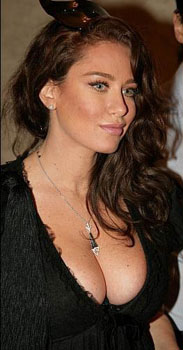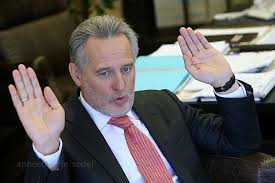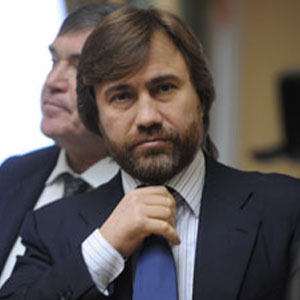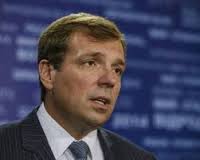This entry has bumped its way up the “should write a few lines about that” list due to further deterioration of the situation as of yesterday when yet more assets were illegally stripped from the Mriya Agro Holding entity that has become something of an international nightmare for the Ukrainian authorities – despite Mriya meaning “Dream” in Ukrainian.

Where to start this nefarious tale, and which names on the periphery to include or exclude is somewhat subjective. What happens next is far from clear either. Whatever the case, there will be many readers left with the perception that the authorities grip upon the rule of law, even with this high profile case involving numerous foreign investors, is more than a little questionable despite innumerable historical and very recent assurances by the authorities to pay special attention to the rights and circumstances surrounding those committing to FDI into Ukraine.
Perhaps most aggravating (aside from an absence of rule of law enforcement) is the fact that this incident is in agriculture – a sector that the Ukrainian authorities view as a leading economic sector to drive and sustain economic growth.
First however, a little historical glossary is required to bring a reader to the present day.
Sometime around 1992/1993 from within the leaderless and lawless rubble of post-Soviet Ukraine Mriya Agro Holdings was created by Ivan and Klaudia Guta. It went on to become a major agricultural holding in Ukraine – among the top 5 in terms of land under management.
The Guta family, Ivan, Klaudia, Andrei and Mykola remained 80% majority share holders even after a successful IPO on the Frankfurt Stock Exchange in 2008.
Investors such as BNP Paribas SA, Credit Agricole SA and UniCredit SpA, while bondholders include Argentem Creek Partners, CarVal Investors, DuPont Capital Management, Pioneer Investment Management and T. Rowe Price Group Inc piled in, the World Bank and EBRD provided loans for expansion. Why not? Mriya Agro was reporting wonderful annual results ($660 million per annum) and reportedly had a truly enormous 320,000 hectares of land under management.
Quite where the due diligence was in all of this is unclear, for Mriya Agro Holdings had within its set up a number of obvious shell companies. There is nothing wrong with shell companies per se as far as doing business in Ukraine is concerned. Whilst they may be synonymous with tax evasion and dodgy dealings they also provide Ukrainians with multiple jurisdictions beyond the ruinously corrupted court system that can insure property rights are far from inviolable.
What reader would have left multi-million/billion dollar businesses at the mercy of a thoroughly corrupted Ukrainian judicial system where rights for such entities historically have been temporary in the hands of a suitably selected judge? Off-shoring is akin to insurance therefore.
Suffice to say that the entirety of the Guta family were shareholders in (at least) 5 off-shore companies, including HF Asset Management Limited which owned the 80% of Mriya and which was subsequently wound up in December 2014 when the company CFO was the infamous Alexander Cherniavsky (see below).
The summer of 2014 found Ukraine with empty cupboards following the Yanukovych regime grand theft, a war with Russia, and the inevitable crash of the Ukrainian currency. Mriya Agro Holding could no longer service its $ denominated bonds. (The total debt portfolio across more than 20 lenders exceeded $1.2 billion.)
By December 2014 it was clear to shareholders of the 20% of Mriya not owned by the Guta family, and also Mriya’s lenders that the Agro Holding was being systematically asset stripped with assets being illegitimately re-registered (often back dated) to other companies, whilst other assets were being stolen, hidden and/or sold off with the proceeds disappearing. A process requiring dodgy lawyers and “black notaries”.
The Guta family and the senior management left Ukraine swiftly when awkward questions began to be asked.
The remaining international shareholders were then faced with acting swiftly not only to deal with the international creditors, but also to prevent the continuing illicit stripping of Mriya Agro Holding.
It swiftly became clear that the accounts of Mriya audited by Ernst & Young (Kyiv office) were hardly a true reflection of Mriya Agro Holdings. Aside from the ubiquitous VAT scams associated with agriculture in Ukraine, the asset stripping, fraud, accounts manipulation and cash skimming swiftly became apparent.
Indeed the 320,000 hectares of land reportedly under management turned out to be 220,000 – prior to further nefarious reductions. In short $ hundreds of millions have been misappropriated
The minority shareholders won control over Mryia Agro Holding in the courts, struck deals the creditors, installed new management and began proceedings in Ukraine (and other jurisdictions), leading to former senior employees being declared wanted. (Indeed Mykola Guta the former CEO had an Interpol Red Notice raised against him, currently sitting under house arrest in Switzerland.) Legal process is underway to reclaim about 60,000 hectares of land bought with stolen cash from Mriya under the names of other companies.
Mryia Agro Holding today operates with about 180,000 hectares of agricultural land under management with a storage capacity of about 600kt. It is now profitable, remains one of Ukraine’s largest agro-holdings, is servicing its restructured debts, has an operating capital of over $40 million, and should head to another IPO sometime around 2018 – 2020.
Bravo the much criticised legal system and law enforcement institutions of Ukraine?
Not exactly.
There have been recent “raider” attacks involving companies in one way or another related to the old Mriya management – FID Global Ltd, Global Health FID, FID Global LLC, Dream Leasing, OOO Bud M Haulage, OOO Bud M ATP, Global Feed Ltd etc.
Over the past month the following has occurred – 21st September 2016, the Kyiv Appeal Court lifted a freezing order on 142 units of agricultural equipment worth around $3 million that was illegally removed from the company by the previous management of Mriya when they defaulted on their debt obligations in August 2014.
The Appeal Court’s decision overturned the freezing order imposed by the Pechersk District Court on July 6th 2016 as part of the main criminal case against Mriya’s previous management and owners. That freezing order had returned the equipment to Mriya under its current management.
On October 4th, the former management began removing the equipment from a Mriya storage site and did once again on 10th October 2016 (prompting this “should write about one day” entry).
In response to the Appeal Court’s decision, the Special Anti-Corruption Prosecutor’s Office (SAPO) has prepared a request for a fresh freezing order. However, bureaucratic inaction by NABU is preventing SAPO’s request from going to court since NABU has (so far) not registered the fact that it is leading an investigation of/within the main criminal case against the former owners and management of Mriya.
The fact that SAPO and NABU are now involved can only mean that those individuals that fall within their legislative remit are involved. The Category A and B public figures – the political class, judiciary, senior civil servants and SOE executives. (The $ value of criminality certainly demands an investigation by an organisation perceived as having integrity.)
Nevertheless few such within that elite class would have the influence over the Appeal Court regarding such a highly visible on-going case with international complainants acting within a very sensitive economic sector for Ukraine.
Somebody with very serious clout is behind the above mentioned rulings less than one week ago – but who? Undoubtedly the door to the Presidential Administration will be getting kicked down (once again) by numerous diplomats connected to the nations of shareholders and creditors – and rightly so. Thus somebody who considers themselves “untouchable” by the Presidential Administration seems most likely to be behind the ordering of the Appeal Court decision.
Is there anybody in the Mriya Agro Holdings history capable of wielding such influence on such a sensitive case? Do any such figures stand out from the others as having previously displayed the “right experience”?
From its inception in 1992/3, along the way the Mriya Holding certainly came into contact with numerous infamous names renowned for their less than stringent adherence to matters relating to the law.
For example, during 2003/4 it was associated with Yuri Karmazin who was something of a celebrity lawyer/parliamentarian at the time associated with questionable activities – among which land regularly featured.
Mriya’s association with Mr Karmazin seemingly came via Elena Berezhnaya, an “enabler of privatisation” granted numerous permanent and surprising legal abilities having done the “legal” for Party of Regions head office in Luhansk during post-Kuchma/pre-Orange 2004/5 elections.
Ms Berezhnaya’s daughter, Irina, miraculously found a role within the Verkhovna Rada in 2002 as an “assistant adviser to Yuri Karmazin and headed the Verkhovna Rada Sub-Committee for Synchronisation of Legislation in Ukraine.
While Elena Berezhnaya stayed in Luhansk and built a dubious but exceptionally profitable legal practice, her daughter Irena became something of a star within the Verkhovna Rada. That stardom was not founded upon her legal qualifications or wily understanding of legislature, but rather that she was the first to bring cleavage to the VR coliseum, the first to bring tits to the theatre of the absurd, the first to bring admirably presented bare bosom to the most elite and feckless business club of Ukraine.

Irina Berezhnaya
In short, womanliness was first displayed through fashionable “working apparel” within the corridors and halls of the Verkhovna Rada by Irina Berezhnaya, where conservative female dress code had otherwise prevailed.
To be honest, even as a “leg man”, the 2002 (onward) daily fun-pillow displays Irena presented to parliamentarians certainly caught the eye. However, neither association with the then power of Mr Karmazin, nor Irena’s rather splendid boobs were her only attractions. She was also associated with a very dubious notary service (black notary service) called Astra-Service.
By 2004 the illicit practices of this dubious (black) notary service had acquired clients such as VAB Bank, Ukrsotsbank and Mriya Agro Holdings. To be blunt, such a notary service is rather useful when it comes to acquiring agricultural land rights by hook or by crook.
In 2006 Mr Karmazin lost his parliamentary position and was duly traded in by Irena Berezhnaya for one of Ukraine’s most infamous characters, Boris Fouksman.
Mr Fouksman is long (and strongly) rumoured to have made a fortune smuggling antiques and icons out of the USSR prior to its collapse, for having been involved in gun-running and having close Russian mafia connections – notwithstanding significant influence within Party of Regions at the time.
It therefore follows that the buxom Ms Berezhnaya became a Party of Regions Deputy within the Verkhovna Rada in 2007 under such patronage (collecting numerous honours and awards along the way both within Ukraine and an Honorary Professorship from the International University of Economics Vienna), until 2014 and the aftermath of the Yanukovych regime flight whereby she lost her parliamentary mandate.
It is rumoured that the daughter of Irena Berezhnaya is fathered by Boris Fouksman – though this has not been confirmed or denied. The godfather of the child is known – the almost universally despised Nester Shufrych.
During her parliamentary period Ms Berezhnaya became “known” for supporting “raids” on corporate entities – for example Tochmash and Sinbias Pharma among several that had dealings with VAB Bank (behind which sat Boris Fouksman). VAB Bank being one of the first VIP clients of Ms Berezhnaya’s (black) notary service Astra-Service along with Mriya Agro Holding.
Since losing her Deputy’s immunity, she has, perhaps unsurprisingly, having facilitated so much nefarious activity within the elites, not been subjected to any repercussions as far as the rule of law is concerned. No doubt “insurance policies” of historical transactions exist should she fall under the eye of the law.
She is however, hardly powerful enough to have caused the latest Appeal Court judgement.
What seems most prominent in the history of Mriya Agro Holdings prior to its unsavory revelations of 2014 is the very short term appointment of the infamous Alexander Cherniavsky as CFO between September to December 2014 – the time when Mriya Agro Holdings then defaulted on $1.2 billion of bonds and land and assets where illegally re-registered in alternative company names.
Mr Chernaivsky is associated with Rinat Akhmetov, Sergei Liovochkin and Artem Ershov and in particular to the dodgy dealings surrounding the purchasing of Ukrtelecom many years ago.
A reader may possibly perceive that Mr Chernaivsky was deliberately installed for a specific (and nefarious) purpose considering such a short tenure as CFO and what occurred during that time. Questions perhaps regarding Mriya’s interaction with Rinat Akhmetov’s FUIB bank may be asked? (Rumours also circulate regarding Alpha Bank involvement.)
Is Mr Akhmetov the “untouchable”? If a reader believes that the occupied Donbas will return to Ukrainian control, then it will surely be stewarded by Rinat Akhmentov as the biggest employer in that region.
That said, the vast majority of illicit money channels from scams and schemes did not flee with the Yanukovych regime. The names of the end recipients simply changed. Some of those surrounding President Poroshenko have hardly displayed morality or integrity since he came to power. It is well within the realms of possibility (maybe even probability) that for a large enough fee, the desired Appeal Court decision would be reached upon their nod despite serious and numerous negative implications for the Ukrainian State.
Whether a Ukrainian journalist will attempt to find out the puppeteer behind the Appeal Court ruling, or ascertain exactly who among the ruling elite is playing “roof” for the Guta family and their on-going schemes remains to be seen. Perhaps in the next few days a name will become apparent.
In the meantime international shareholders and investors continue to get shafted in Ukraine despite favourable court rulings and the instigation of criminal proceedings, whilst criminal proceedings and court rulings thus far have put nobody in jail almost 2 years after they were instigated.












